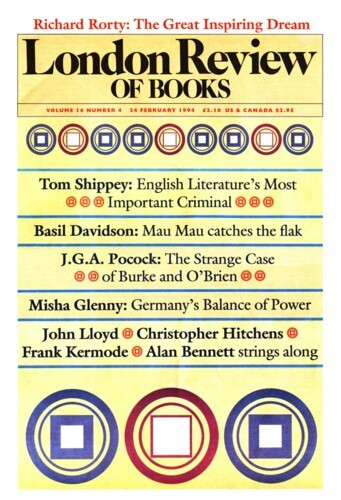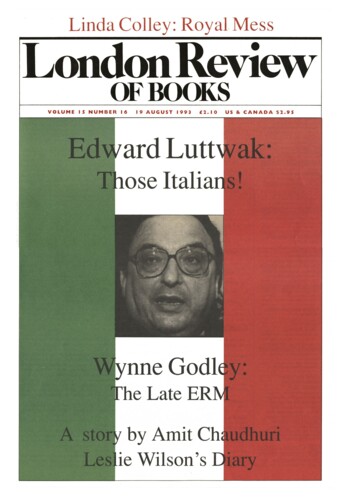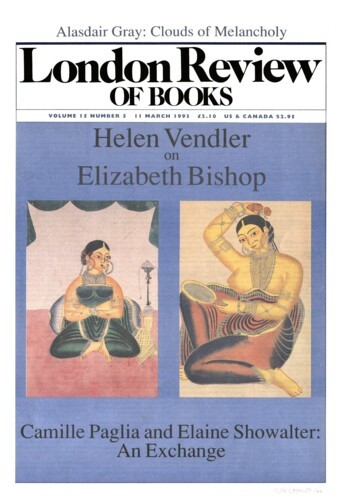A Life of Its Own
Jonathan Coe, 24 February 1994
‘Many people would say – there stands English comedy,’ David Frost is reported to have declaimed, as Frankie Howerd and Kenneth Williams stood side by side on his doorstep. Williams was unimpressed. ‘I thought to myself, “Then many people would be lacking in perception,” but shouted drunken goodbyes and reeled down the street into a taxi.’ What these two Titans of comedy might have said to one another is left entirely to the reader’s imagination. Similarly, the tantalising image of Howerd and Williams sitting down to lunch together in the Pinewood Studios canteen during the filming of Carry On Doctor dissolves brusquely enough into mundanity. ‘He is undoubtedly a very boring man,’ Williams recorded. ‘Loves talking, but there is no really cultivated mind. He continually says “eksetra” which is irritating.’’





